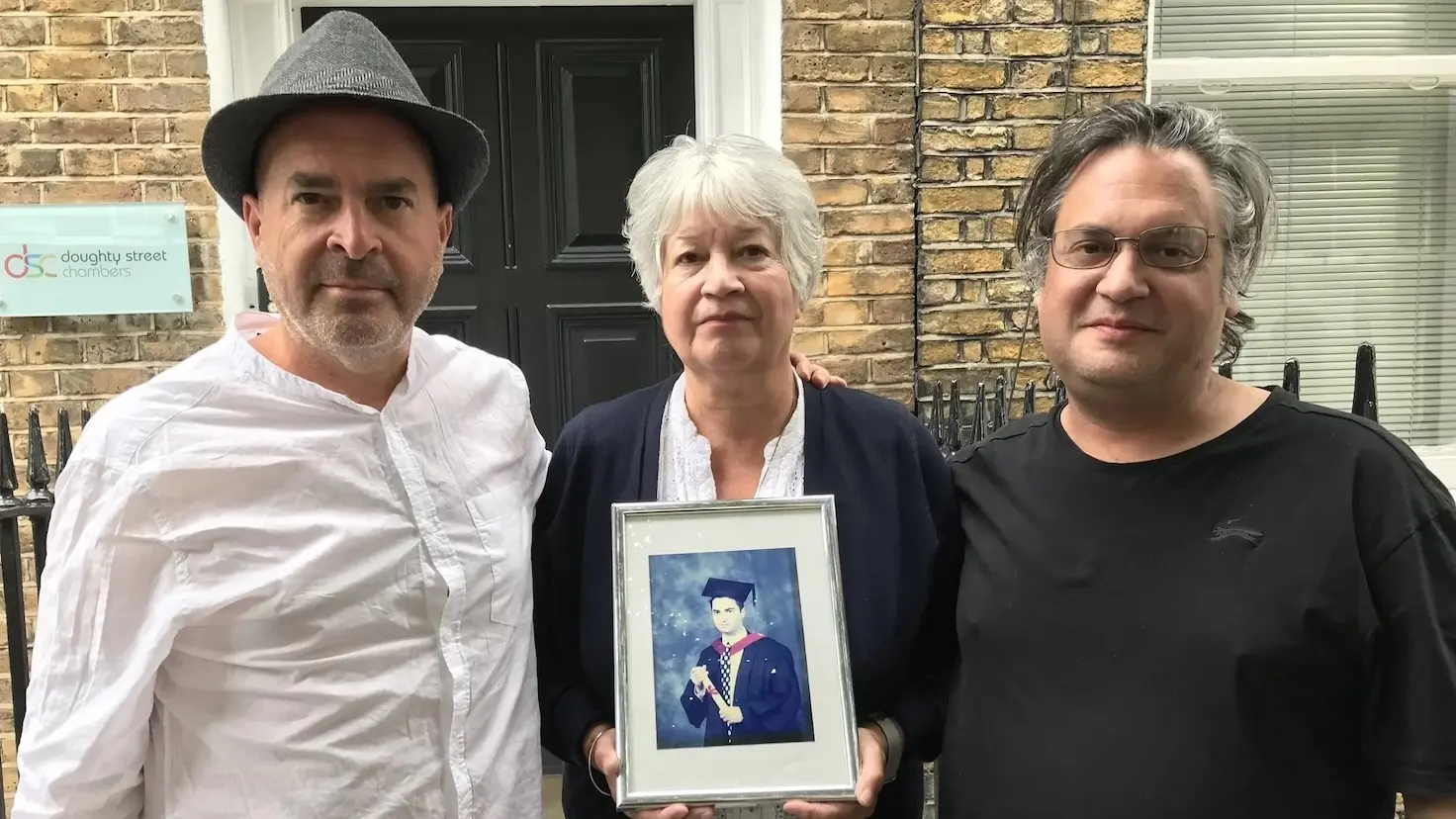The Campbell family’s challenge to the British attorney general’s refusal to allow a fresh inquest into 9/11 victim Geoff Campbell’s death will take center stage in the British High Court on June 18 — with major implications for both the family’s pursuit of truth and the rule of law in the UK.
The one-day preliminary hearing will take place in the Administrative Court at the Royal Courts of Justice in London, beginning at 10:30 AM.
Members of the public are welcome to attend the hearing. Courtroom details will be published the day before on the Royal Courts of Justice daily cause list.
At stake is whether the AG’s refusal to authorize the family’s application for a fresh inquest under the Coroners Act 1988 is subject to judicial review — that is, whether a court can examine the legality of such a decision.
If the court finds that it lacks jurisdiction, all AG decisions under the Coroners Act 1988 (and possibly other statutes) will be considered beyond judicial scrutiny, and the Campbell family’s claim would be blocked entirely — though the Campbell family could appeal the ruling.
If the court finds that the AG’s decision is reviewable, the case will then proceed to the “permission stage,” where the court will consider whether there is an arguable case with a realistic prospect of success. If permission is granted at that stage, the case will move to a substantive hearing, where the court will assess the lawfulness of the AG’s decision in full.
Why the family is challenging the AG’s decision
Geoff Campbell was killed in the North Tower of the World Trade Center on September 11, 2001. In 2013, a West London inquest concluded that his death was caused by American Airlines Flight 11 crashing into the North Tower and leading to its collapse at 10:28 AM.
In 2021, Geoff’s family applied for a fresh inquest on the basis of extensive new scientific, expert, and eyewitness evidence indicating that explosives and incendiaries — not the plane impact — caused the North Tower’s destruction. The AG denied the application in January 2024, prompting the current legal challenge.
If the High Court allows the case to proceed, it will then consider whether the AG’s refusal was itself unlawful. The family’s legal team contends that it was, on several grounds:
- Misapplication of the legal test: The AG failed to properly apply the “interests of justice” test under Section 13, instead using unduly restrictive standards not supported by law.
- Insufficiency of the original inquiry: The 2013 inquest included no evidence or analysis of what caused the tower’s total collapse — the central issue in how Geoff Campbell died. The AG’s rejection of this argument ignored binding legal principles requiring coroners to conduct a “full, fair and fearless” inquiry and improperly relied on documents not presented at the inquest.
- Unreasoned dismissal of new evidence: The AG provided no adequate explanation for rejecting more than 2,500 pages of scientific, expert, and eyewitness evidence that was not heard at the 2013 inquest, including new sworn testimony from several first responders who witnessed explosions.
- False assertion of consensus: The AG incorrectly claimed there is a “clear consensus” against the family’s hypothesis, despite published peer-reviewed research and expert analyses showing that the cause of the collapses remains a subject of serious dispute.
- Unreasonable categorization of the family’s hypothesis as ‘fanciful’: Without sound reasoning, the AG summarily dismissed the family’s position as “fanciful,” despite its basis in forensic analysis and despite evidence showing that dozens of first responders and officials at the scene suspected the use of explosives.
Broader constitutional stakes
If the court upholds the AG’s immunity from review, it would establish that no court may ever question the AG’s refusal to authorize a new inquest (and possibly decisions under other statutes), regardless of the strength of the underlying evidence or the irrationality of the AG’s decision.
Legal scholars warn that such a precedent would carve out a dangerous exception to the rule of law, shielding one of the most powerful legal officers in the UK from accountability.
This case, therefore, represents not only a deeply personal quest for truth by the Campbell family but also a constitutional test of whether the UK attorney general’s statutory decision-making is above the law.
Stay tuned for the outcome of this immensely consequential hearing.



